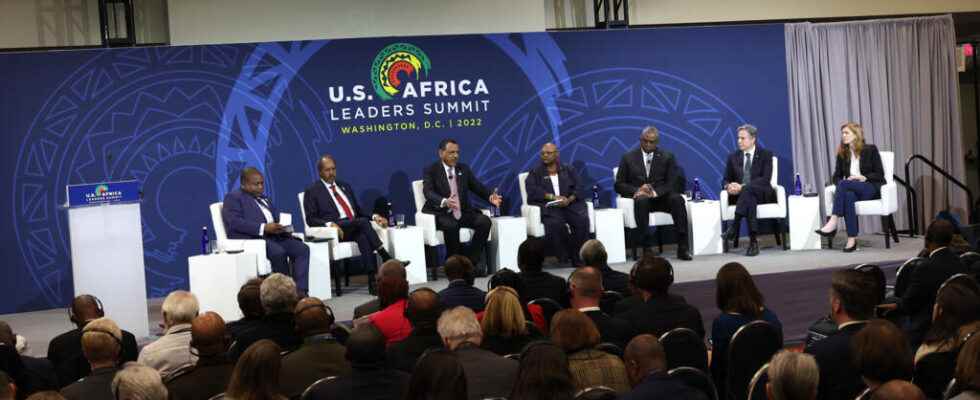The United States / Africa summit in Washington began on Tuesday in the American capital. On the first day, peace, security and good governance were discussed. And the shared observation is that it is the roots of insecurity that must be fought.
With our correspondent and our special correspondent in Washington, Guillaume Naudin and Magali Lagrange
They are three heads of state on stage, from three different sub-regions. There is the president of Niger, that of Somalia and that of Mozambique. And when they talk about insecurity, they first talk about climate change, the scarcity of resources reinforced by galloping demography and bad governance. For them, these are the roots of insecurity.
In turn, the Chairman of the African Union Commission, Moussa Faki Mahamat explains that this is the root cause of terrorism which leads to and often serves as a pretext for unconstitutional power grabs. He adds that the two phenomena nourish each other and that it is at the base that they must be fought.
The Nigerian President mohamed bazoum, he thanks his American interlocutors for the excellence of their military aid. But what he asks above all is help to finance the education of young people, especially young girls.
A speech well received by US Secretary of State Anthony Blinken who wants to first listen to the demands of Africans and then respond to them. While specifying, alongside his colleague from Defense, Lloyd Austin, that the short-term security needs of their partners will also be met.
► To read also: United States / Africa Summit: “Africa has become a geopolitical issue”
” Civil society and governments can team up »
Other events are held on the sidelines, such as a civil society forum. The opportunity for her to recall its importance in many countries. And for the United States, to show that they take governance issues into account.
Zambian President Hakainde Hichilema, elected a year and a half ago when he was running for the 6th time, the foreign minister of The Gambia, a country that experienced a changeover in 2017 after more than 20 years in power of Yaya Jammeh and the Prime Minister of Cape Verde, an archipelago recognized for its democratic stability were present on stage.
At their side, Samantha Powe, the administrator of USAID, the United States agency for international development. ” Today in Africa, civil society organizations are observing elections in Senegal, exposing government corruption in the Democratic Republic of Congo, or fighting for a return to civilian power in Sudan. There are many examples that demonstrate that civil society and governments can work together she says.
In the room, Fred Bauma, the Lucha activist who also heads the Ebuteli think tank in the DRC, believes that civil society has a lot to contribute to a summit like the one in Washington. ” The big question I ask myself is what is the real consideration that this kind of organization gives to the role that civil society can play in determining what relations can be between the states of the north and the south? “, he wonders.
And during this time, several small groups demonstrated near the center where the summit is being held. Ethiopians who came to denounce the conflict in Tigray, Ugandans against President Yoweri Museveni or even Congolese who came to denounce “the hypocrisy of the international community” concerning the conflict in eastern DRC.
